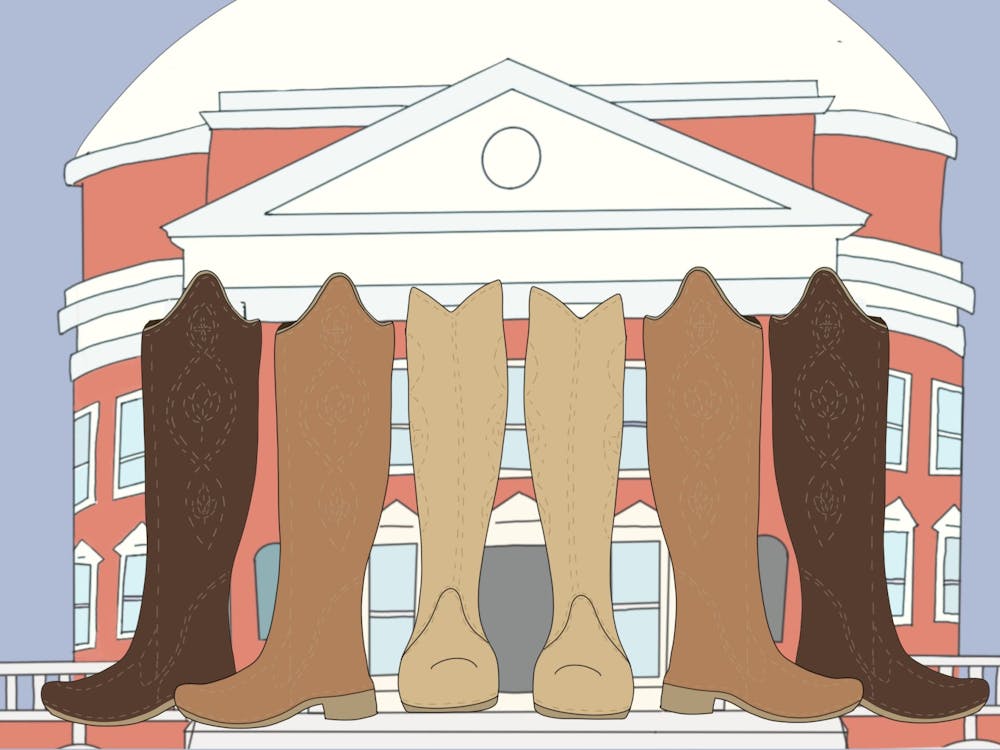Long overdue end
It finally is over. Well, at least until the lawsuits are filed. The travelling circus known as the Kory v. Smith, Kintz and Tigrett University Judiciary Committee case ended last week in the same place where its resultant uproar began--with the Judicial Review Board. And after a year and a half of trials, appeals, protests and angry rhetoric, it is time for the University to move on and learn from its mistakes.
Perhaps the UJC's most famous case, U-F97-36 has had more twists and turns than Skyline Drive. But it hasn't been nearly as pretty. In many ways, the case has brought out the worst in the University and may have foreshadowed the demise of student self-governance and our idealistic system of justice. Students elect their peers to represent them on the Committee and to sit in judgement of their fellow students. And this is exactly what happened on Nov. 21 of last year.
But something went wrong the day before the trial. Smith and company were led to believe by William W. Harmon, vice president for student affairs, that their trial would be postponed. It wasn't. The three were tried in absentia and were expelled. The bottom line is that not only does Harmon not have the authority to postpone a UJC case, but Committee rules allow trials to take place in abstentia. Yet the fact that the students did not attend their trial was cited by the JRB (during the first stop there) as a reason for granting a new trial. Confused?
The new trial never happened. The UJC ran out of people who could chair the case and the student prosecutors resigned. The Committee then referred the case to Harmon, the same person who incorrectly gave the trio the idea that the original trial was postponed. Still confused?
Harmon then decided to convene a fact-finding panel consisting of zero undergraduates to hear the case. They then tried the three students and issued their recommendations to President Casteen. But Casteen, who proceeded to double the suspensions of both Smith and Tigrett, saw their recommendations as far too light. The two then appealed Casteen's decision once again to the JRB. This time, however, the Review Board denied their appeal.
So, in the 19 months that has elapsed since the assault, Smith, Kintz and Tigrett have been bounced around the University like pinballs. They were tried by the UJC once and by Harmon's fact-finding panel once. They were supposed to be tried by the JRB in February, but that never happened. They were supposed to be tried by the UJC in April, but that never happened either. They went from the Judiciary Committee to the JRB, back to the UJC, then to Harmon, then to Harmon's panel, then to Casteen, and then, somehow, back to the JRB. How the JRB has any authority to review a decision made by the president of the University is beyond us.
In the middle of all this mess was a rally on the Lawn, numerous headlines in the Richmond, Washington and Memphis newspapers, and a petition signed by 1,300 students calling for the trio's expulsion. And last semester, Sandy Kory, the victim, had a class with Richard Smith. Despite the fact that Committee rules state that sanctions go into effect immediately after they are rendered, the students managed to stay enrolled pending retrial and re-appeal.
But it now appears the disciplinary roller coaster ride has come to a halt. It is time now to move on and put the case behind us, having learned several important lessons.
One, professional lawyers have no place in a student-run process. Two, when administrators mettle into a student-run affair, it is often for the worse. Three, when students band together and stand up for perceived infringements on student self-governance, positive outcomes will result. Sure, those who rallied called for Smith's expulsion. But a two-year suspension will have the same effect--Sandy Kory can graduate without having to take another class with Richard Smith.
And lastly, President Casteen has proven that he will not tolerate on-Grounds assault at the University and those who engage in such conduct will be forced to spend a significant amount of time exactly where they should--away from here.




